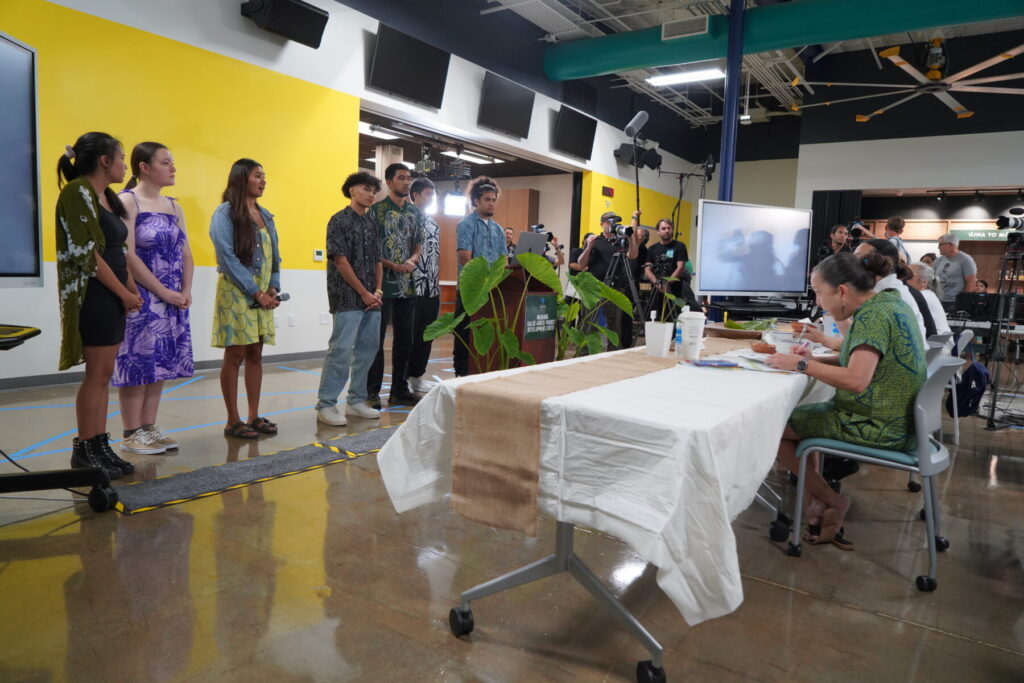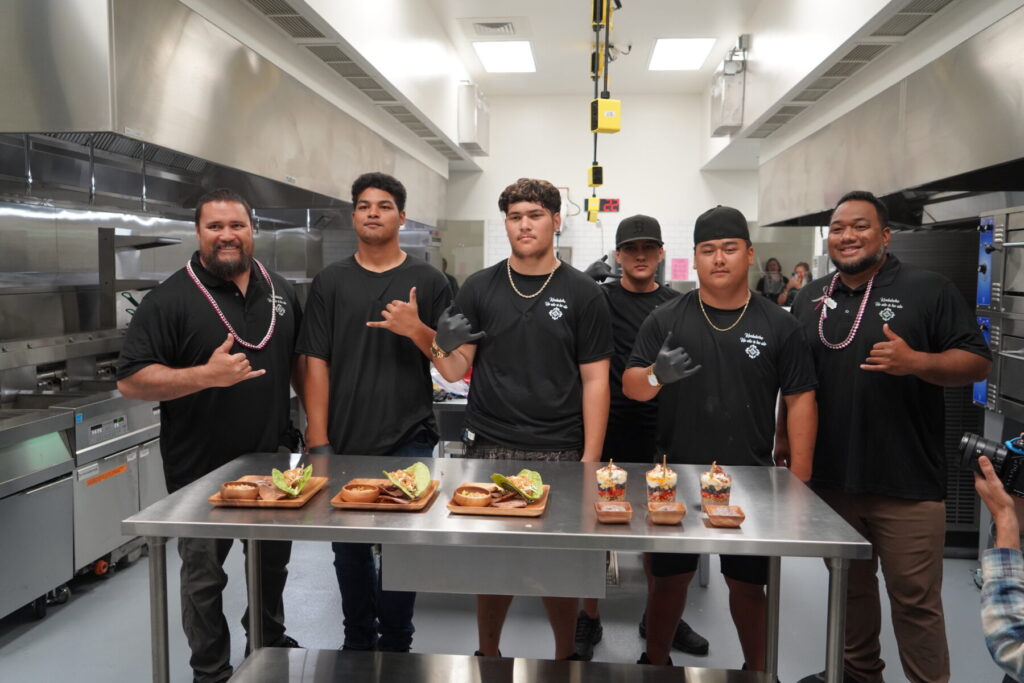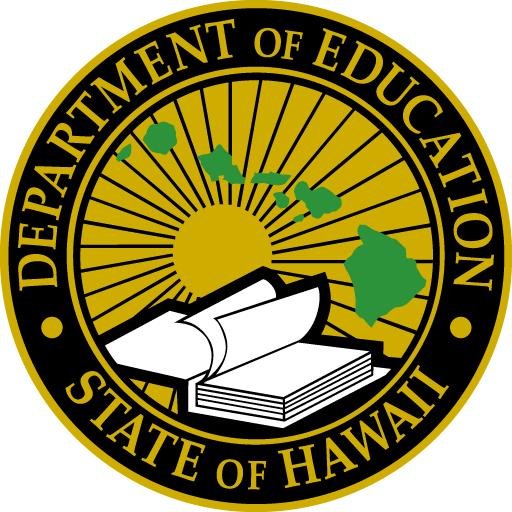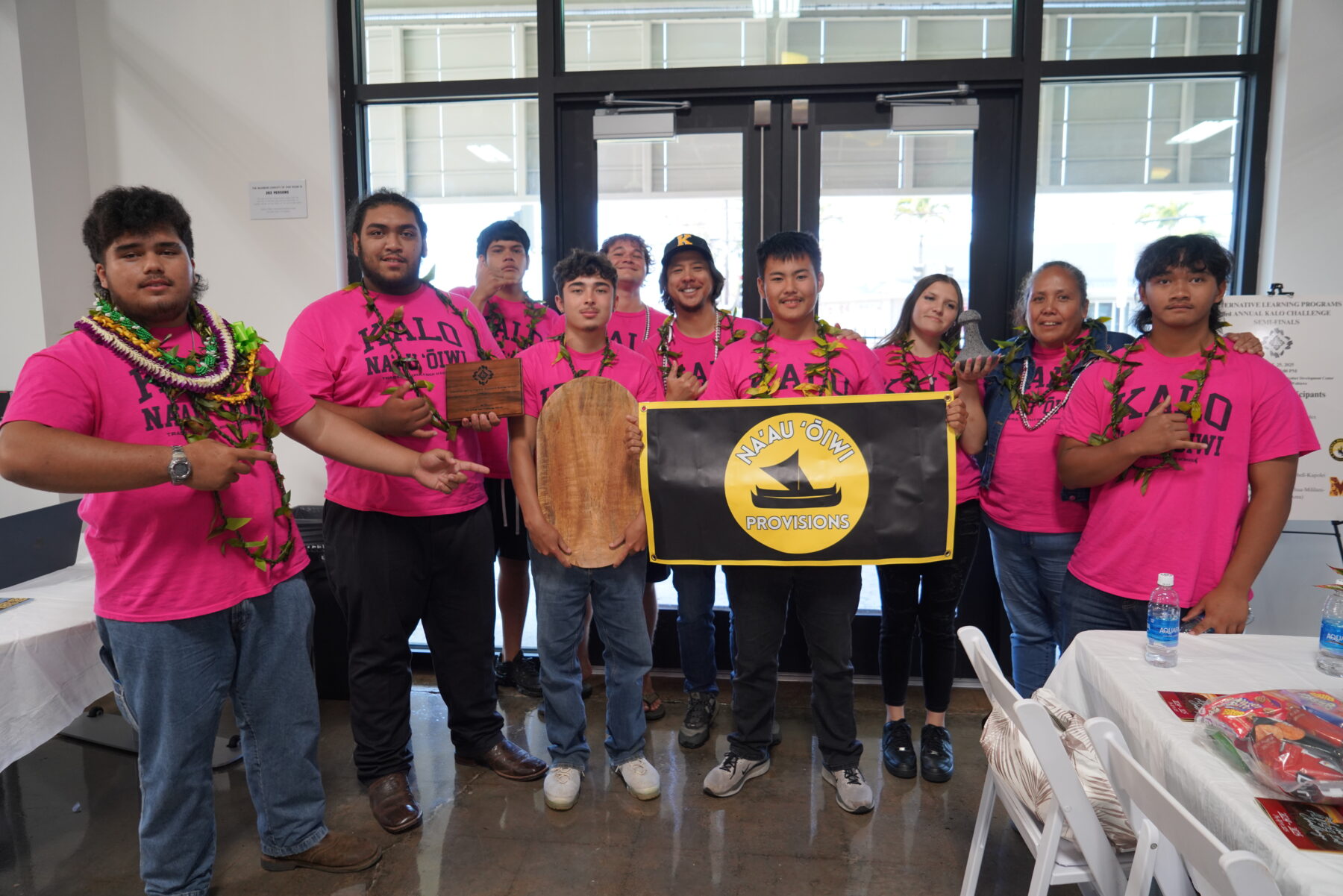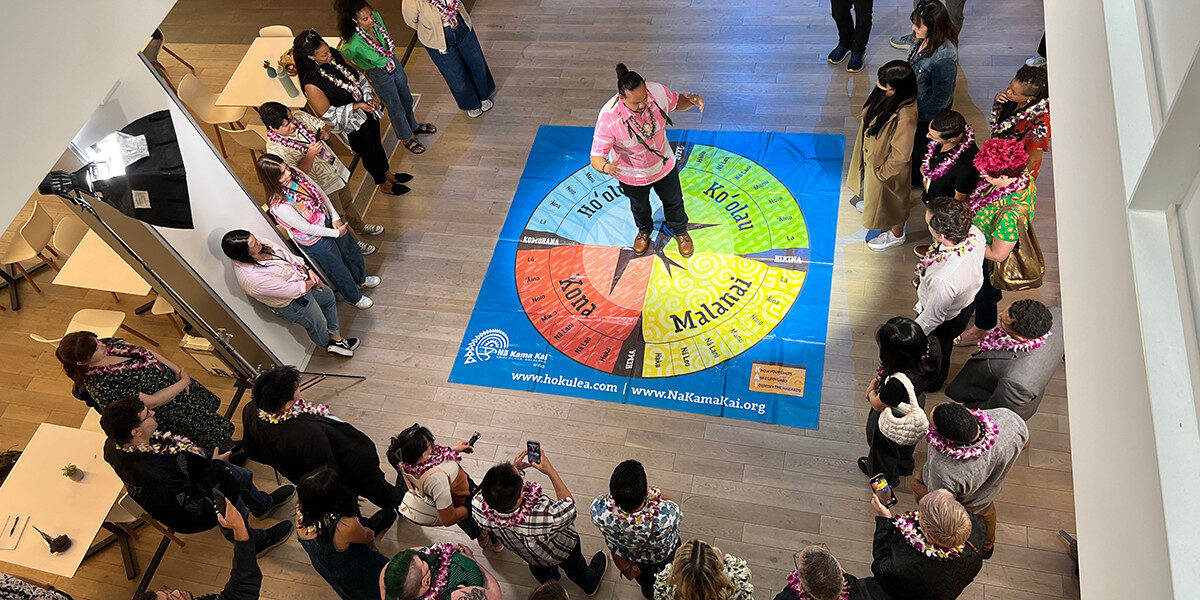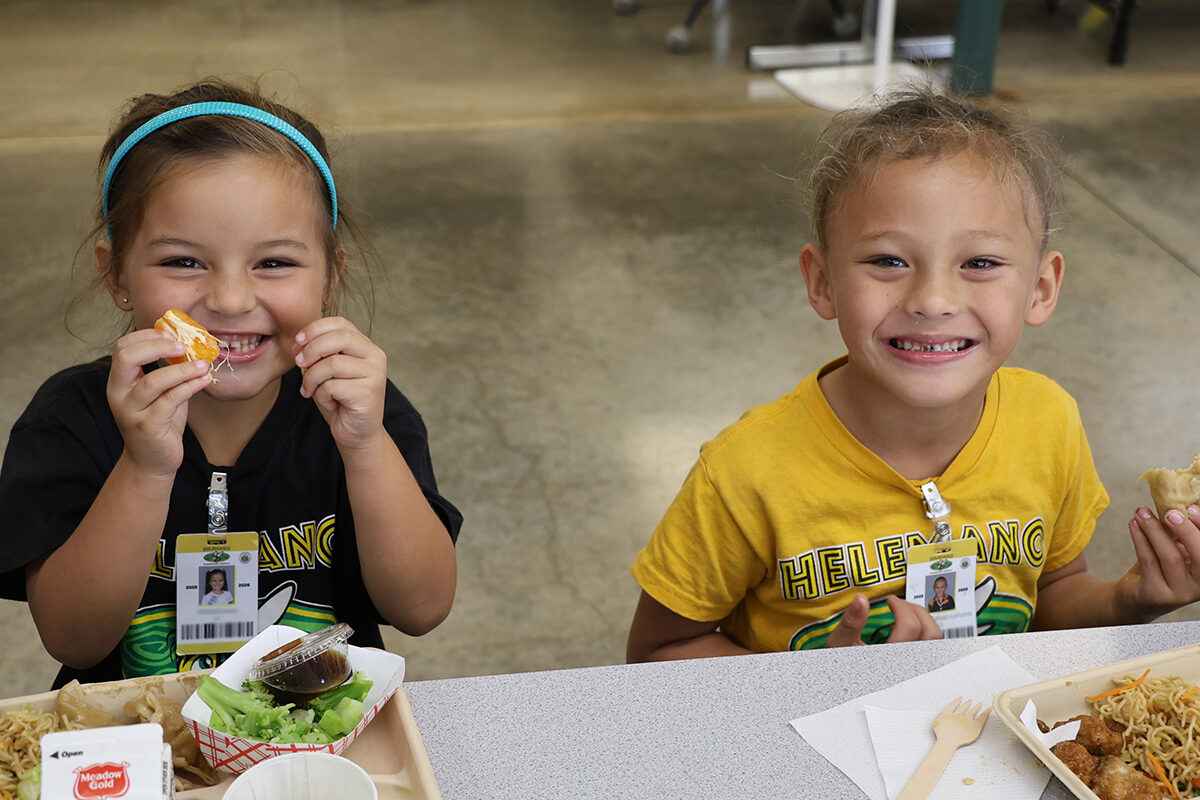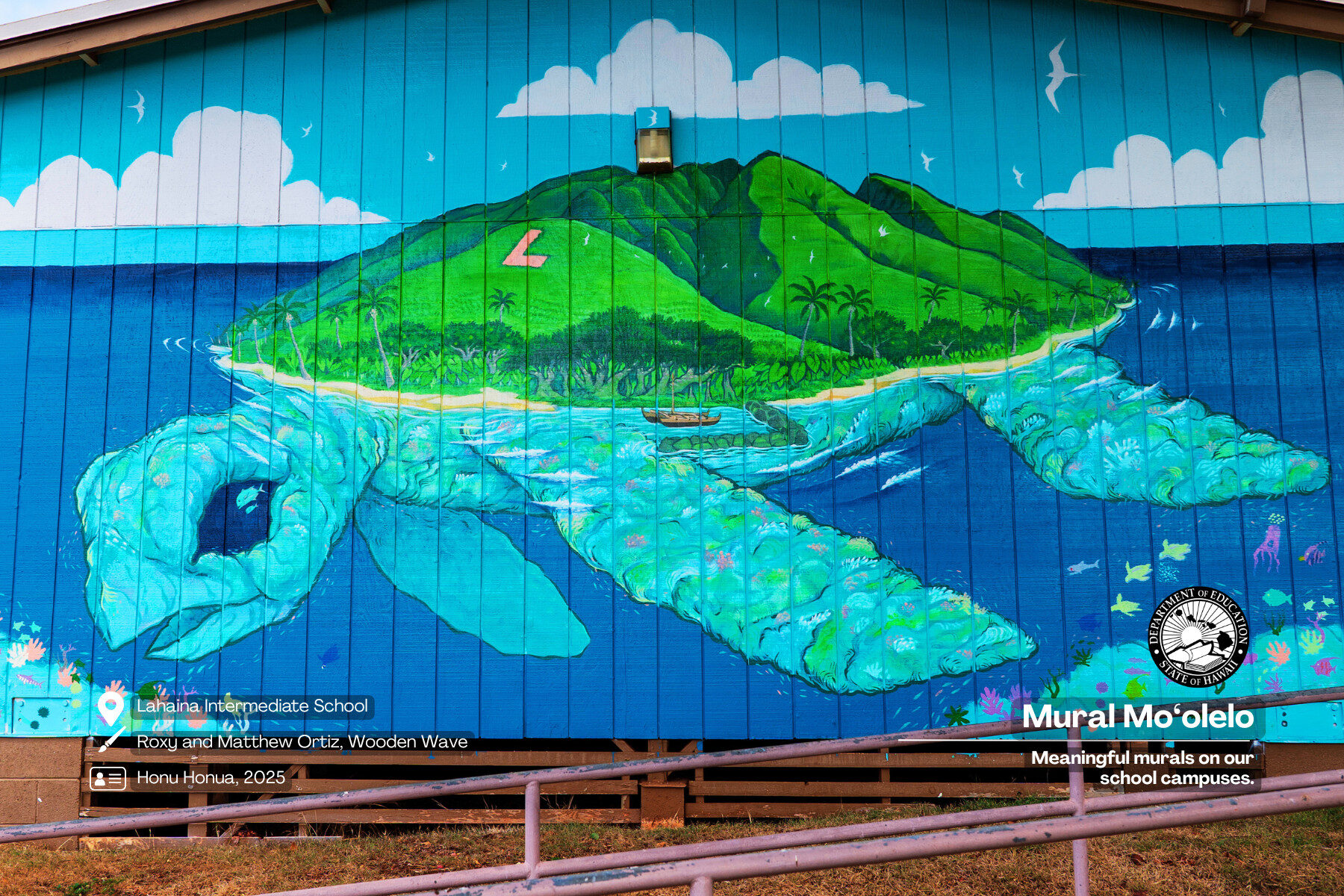WAHIAWĀ — Students from Kohala High School’s alternative learning program, Naʻau ʻŌiwi, defended their winning title in the third annual Kalo Challenge hosted by the Hawaiʻi State Department of Education’s (HIDOE) Alternative Learning Programs Branch at the Wahiawā Value Added Product Development Center today.
The Kalo Challenge is the finale of a yearlong project where at-promise students from across the state learn about planting and cultivating kalo (taro) and then turn their harvest into an innovative culinary dish.
Inspired by the Lahaina wildfires, Kohala High’s Naʻau ʻŌiwi students created “emergency kalo rations,” which included freeze dried instant poi, kalo paʻa, kūlolo and laulau. The cohort of students, led by teacher Aoloa Patao, included: Nainoa Hooke, Daylan Kaitoku, Clozieur Ke-a, Tiras Perez, Ryson Peres-Neves, Cherish Philpot, and Stacen Stevens.
“[The Lahaina wildfires] kind of opened our eyes, like, what are we going to do if something like this happens to us in Kohala,” Stacen Stevens, a Kohala High School senior said regarding how they came up with their dish. “There’s a lot of canned goods on everybody’s shelf, but nobody wants to live off of canned food so we thought, how are we going to take something from home, something from Hawaiʻi, on the go.”
Last year students from Kohala won the challenge with a “kalo-min” dish, a twist on saimin made with noodles incorporated with dehydrated kalo and ‘ulu (breadfruit), an ahi-based broth, local eggs and char siu. The year before that, they won the inaugural challenge with a kalo pizza made of dehydrated kalo incorporated into the dough, kalua pig topping and a poi drizzle.
“We come from a basketball community so sports is a big thing — and so to have students who are finding success in the academic realm is so awesome because they get to cheer themselves on, and pat themselves on the back for doing a great job at doing something in the academic sphere,” Kohala High Na’au ʻŌiwi teacher Aoloa Patao said. “Overall, I’m really happy that they get to experience this kind of joy in the academic setting because prior to this, they may have not found that kind of success, and now they have that success.”
Among the finalists — who advanced from regional competitions — in this year’s Kalo Challenge were students from Kapolei High’s Ho’ola Academy and Kealakehe High’s He alo ā he alo program. Kapolei High students presented a “kalo delights” dish of poi donuts and vanilla ice cream topped with a coconut cream, and Kealakehe High students presented a kalo fish taco dish with kalo salsa, kalo chips, and a poi kūpaʻi (poi parfait).
The judges for the final were Jeremy Shigekane, executive chef at Prince Waikiki; Alexandra Obra, principal of Waiāhole Elementary School; and Ben “Kauhane” Heloca, instructor with Hāleo Hawaiian language program at the University of the Nations and program director for Piliahāleo Intergenerational Hawaiian language programs at multiple institutions.
In addition to presenting their culinary dishes, students presented their overarching learning journey of the Kalo Challenge, sharing what they learned about the history of kalo, the different varieties of kalo, and how to cultivate the plant, before community program supporters.
“[The Kalo Challenge] is such an exciting event because we get to see students become entrepreneurs, come up with new products, learn Hawaiian history, and learn what the taro history is about,” said Senator Donovan Dela Cruz, a staunch supporter of the alternative learning program. “I’m looking forward to a lot of these students becoming more small business owners in the future and contributing to our society.”
The HIDOE Alternative Learning Programs, Services and Supports (ALPSS) aims to offer at-promise students with innovative instructional strategies and learning environments to improve their academic competencies and enable them to meet HIDOE-adopted state standards and graduation requirements. ALPSS provides transitional support services as at-promise students move from school to alternative programs, re-enter school successfully, graduate from high school, and prepare for positive post-secondary outcomes.
“By getting our students into these programs we’re giving them confidence, we’re giving them wraparound services, we’re making sure that they’re going to have the skills that they need to be better people and better citizens in life,” Senator Dela Cruz said.
